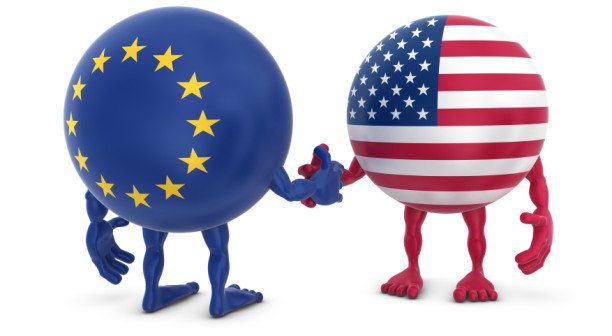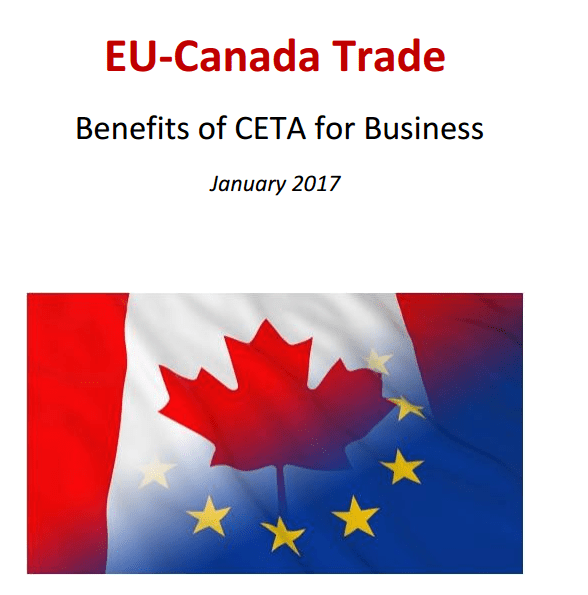Growing Our Trade Abroad- Update from Brussels

The Transatlantic Trade and Investment Partnership (TTIP), a proposed trade agreement between the EU and the United States, has been a trade deal that the Irish business community has strongly advocated for in recent years. The Irish economy was predicted to benefit from TTIP more than twice the EU average, with these benefits extending to not only the multi-nationals based here, but also SMEs. However, following November’s US Presidential election and the Trump administration’s preference for a more protection approach to trade, negotiations for TTIP (following more than three years of talks) are indefinitely on hold
While this is disappointing for those who support increased trade, the EU-US trade deal has not been the only item on the EU’s trade agenda. Promoting transatlantic trade with Canada has also been a top priority for the EU in recent years, and continues to be so. The Comprehensive Economic and Trade Agreement (CETA) with Canada was finalised in 2014 and offers significant opportunities for growth in trade with Canada and opens up public procurement markets in the Canadian provinces giving Irish firms increased access to Canadian public sector purchasing. Ireland will gain unlimited tariff free access for most of our important food exports. Irish firms, particularly SMEs, will also benefit from the recognition of product standards and certification, thus saving on ‘double testing’ on both sides of the Atlantic.

Following the approval by the European Parliament of CETA in February of this year, the next steps fall to the Canadian Government to finalise is internal implementations procedures to allow for their ratification of the agreement. It is expected that CETA will provisionally apply from summer 2017. The agreement will remove over 99% of tariffs between the EU and Canada, and will create new market opportunities for investors. To learn more the trade agreement, read our factsheet on how Ireland will benefit from the trade agreementor visit the European Commission website.
The European Commission is also focusing on finalising new trade agreements with other regions. It is expected that a trade agreement between the EU and Japan will be finalised later this year. The EU is also hoping to complete negotiations for a modernised trade deal between the EU and Mexico. This agreement will replace the existing one, which was signed more than 20 years ago. Since the entry into force of the existing trade agreement in 2000, trade volumes between the EU and Mexico have tripled. In February, both parties agreed to significantly accelerate the pace of negotiations to reach a deal sooner. The new deal will simplify administrative burdens, cut red tape, boost growth and competitiveness, widen consumer choice and create jobs on both sides.
Lastly, earlier this month the ECJ, the EU’s highest court, ruled that a key EU-Singapore agreement requires ratification by all EU member states, but only on specific issues where there is shared competence. The EU –Singapore seal was settled in 2013 but has yet to be ratified. The past is among the first in a “new generation” of trade deals that have been expanded to include intellectual property, investment and public procurement, as well as the more traditional areas of customs and non-tariff-barriers.
